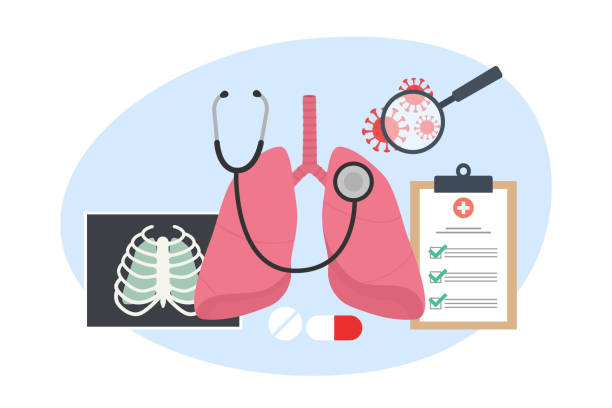Expert Treatment for Respiratory Infections

What Are Respiratory Infections?
Respiratory infections refer to infections that affect the respiratory system, including the airways, lungs, and the structures involved in breathing. They can be caused by various pathogens, such as viruses, bacteria, or fungi, and can lead to mild to severe symptoms. Common respiratory infections include the flu, pneumonia, bronchitis, and the common cold.
Types of Respiratory Infections
The most common types of respiratory infections include:
- Upper Respiratory Infections (URIs): Includes the common cold, sinus infections, and pharyngitis (sore throat). These are often viral infections and can cause symptoms like nasal congestion, sore throat, and mild cough.
- Lower Respiratory Infections (LRIs): Includes pneumonia and bronchitis, which affect the airways and lungs. Symptoms can be more severe, including chest pain, difficulty breathing, and high fever.
- Influenza (Flu): Caused by the influenza virus, the flu can cause fever, chills, body aches, fatigue, and respiratory symptoms.
- COVID-19: A viral infection caused by the SARS-CoV-2 virus, COVID-19 primarily affects the lungs and can lead to severe respiratory issues.
- Bronchitis: An infection of the bronchi (the large airways in the lungs) that can cause coughing, wheezing, and difficulty breathing.
Symptoms of Respiratory Infections
The symptoms of respiratory infections can vary depending on the type of infection, but common symptoms include:
- Persistent cough
- Difficulty breathing or shortness of breath
- Fever or chills
- Chest pain or tightness
- Sore throat or nasal congestion
- Fatigue or weakness
- Wheezing or noisy breathing
- Headache or body aches
Causes of Respiratory Infections
Respiratory infections are primarily caused by viruses, bacteria, or other pathogens. Common causes include:
- Viruses: Influenza virus, common cold virus (rhinovirus), respiratory syncytial virus (RSV), and COVID-19 virus are common viral causes of respiratory infections.
- Bacteria: Streptococcus pneumoniae, Mycoplasma pneumoniae, and Haemophilus influenzae are common bacterial pathogens causing respiratory infections.
- Fungi: Fungal infections can also affect the lungs, especially in immunocompromised individuals.
Diagnosis of Respiratory Infections
Diagnosing respiratory infections typically involves a thorough medical history, physical examination, and diagnostic tests such as:
- Chest X-ray to detect pneumonia or other lung conditions
- Blood tests to check for signs of infection or inflammation
- Throat culture or nasal swab to identify viral or bacterial pathogens
- Pulmonary function tests to assess lung function in cases of chronic infections
Treatment for Respiratory Infections
Treatment for respiratory infections depends on the cause and severity of the infection. Common treatments include:
- Antibiotics: Prescribed for bacterial infections like pneumonia or bronchitis.
- Antiviral Medications: Used to treat viral infections like influenza or COVID-19.
- Rest and Hydration: Important for recovery from viral infections like the common cold or flu.
- Cough Medicine: To relieve coughing and discomfort.
- Oxygen Therapy: Administered in severe cases of respiratory distress.
- Vaccination: Vaccines such as the flu vaccine and pneumonia vaccine can help prevent certain respiratory infections.
Why Choose Dr. Yashi Singh for Your Respiratory Infection Treatment?
Dr. Yashi Singh, a leading pulmonologist in Greater Noida, provides personalized care for respiratory infections. With years of experience, she offers accurate diagnosis, effective treatments, and compassionate care to help patients recover quickly.
Schedule a Consultation
 +919769194299
+919769194299
